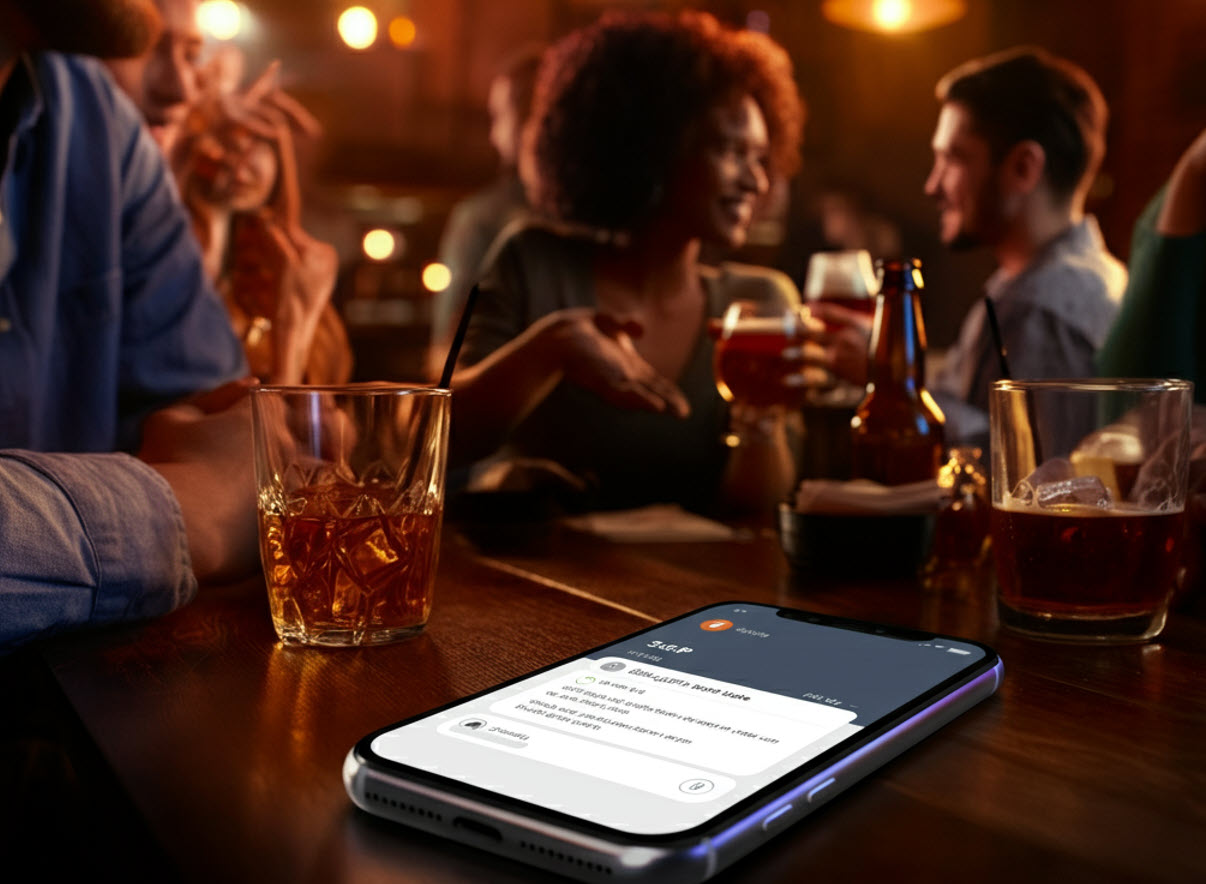Heineken’s “The Flipper”: Sparking Real-Life Connections with a Tech Twist
Heineken has made waves once again, fusing technology and social dynamics with their latest innovation, “The Flipper.” This AI-powered phone case is designed to flip your smartphone face down when it hears the word “cheers.” But this isn’t just a clever gadget for bar banter; it’s a deliberate attempt to tackle the growing social issue of “phubbing”—snubbing those around you to scroll through your phone instead. Here’s a closer look at how Heineken’s inventive solution fits into the broader conversation about technology, social interactions, and the delicate line between connection and distraction.
Heineken’s Striking Blend of Tech and Social Engagement
Imagine sitting at a bar, laughter swirling in the air, glasses clinking in a ritualistic “cheers”—and suddenly, your phone flips over on its own. That’s exactly what “The Flipper” delivers. Powered by an AI-trained microphone connected to a robotic arm, this quirky phone case detects the unmistakable sound of the word “cheers.” Once triggered, it physically flips your smartphone face down, removing the temptation to check notifications and encouraging you to stay present in the moment.
This novel device was created in collaboration with Swedish inventor and robotics enthusiast Simone Giertz, often referred to as the “Queen of Useless Machines.” Known for her humorous and practical inventions, Giertz found a personal connection to the project. Reflecting on her experience, she admitted that her previous strategy for disengaging from phones was strict self-discipline, which she lightheartedly acknowledged doesn’t work well. “The Flipper,” she noted, serves as a simple yet effective reminder to put the phone away and enjoy real-life connections.
How Phone Cases Are Revamping Real-World Interactions
Heineken’s initiative taps into a well-documented cultural problem. Studies reveal that 47% of adults admit to “phubbing” in social settings, a behavior that disrupts face-to-face interactions and leaves friendships hanging on seen-but-unanswered text threads. The Flipper’s playful approach shines a spotlight on how deeply phones have infiltrated our daily lives—even during activities meant for bonding and relaxation.
This isn’t Heineken’s first foray into using tech to spark social behavior. Last year, the brand launched “The Boring Phone,” a stripped-down device reminiscent of early flip phones, designed to eliminate modern distractions. It garnered such attention that Heineken added “The Boring Mode” app to turn everyday smartphones into minimalist, feature-light devices. Another prior invention was “The Closer,” a high-tech bottle opener that shut down work emails upon use. All these products underscore Heineken’s ongoing campaign to encourage people to disconnect from screens and focus on real-life moments.
A Larger Trend in Social Tech Innovations
Heineken isn’t alone in this space. Other brands have also dabbled in tech-driven solutions to address social and behavioral challenges. Consider Taco Bell’s “FOOMO detector” cup, which encouraged conversations by syncing drink refills with table-side interactions, or Coca-Cola’s “Hug Me” vending machines that required a physical hug to dispense a soda. These efforts illustrate a growing awareness among brands about the need to rehab social habits without entirely abandoning tech.
More broadly, the cultural focus on mindfulness has inspired products like digital detox kits, screen-limiting apps, and even furniture with phone pockets to help cultivate more intentional interactions. The surge indicates an unspoken acknowledgment that while smartphones are indispensable, they might also be fraying the fabric of personal connections.
The Potential Benefits and Drawbacks of “The Flipper”
The Flipper’s value lies not just in its usability, but in the broader message it conveys. On one hand, it’s a fun, tongue-in-cheek way to address a serious issue. It targets a universal social behavior and reimagines it in a way that’s engaging rather than preachy. The mere act of flipping your phone over can jump-start a philosophical rethink about how often we prioritize digital over physical.
But, like most innovations, it comes with its share of potential downsides. For those who don’t see “phubbing” as a problem or who rely heavily on phones for work or emergencies, “The Flipper” might seem like a gimmick rather than a meaningful tool. Additionally, as a prototype, its long-term commercial viability and potential adoption remain untested.
Even so, with no official sales launch for The Flipper just yet, Heineken is using the device mainly to generate conversation under the hashtag #SocialOffSocials. Whether it hits store shelves or remains a PR campaign centerpiece, its concept is stirring up dialogue around an issue many seem eager to tackle.
How Could This Innovation Shape Social Habits and Digital Distraction?
Devices like The Flipper could reshape how we approach socializing. Picture this scenario at parties or bars, where a flipped phone becomes a badge of honor, signifying your intent to be present. More companies may follow suit by creating products that gently nudge users toward balance without fully abandoning technology.
Long-term, these designs could inspire a cultural shift, reminding people of the joy that comes from shared laughter, meaningful eye contact, and uninterrupted moments. The Flipper might just be a small, robotic arm, but its impact could stretch beyond the bar top, reminding us to “cheers” not just to drinks, but to genuine human connection. Cheers!

